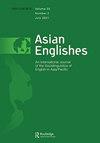双语2030:在多语言、多元文化的台湾加速英语发展
IF 1.8
Q1 LINGUISTICS
引用次数: 0
摘要
摘要本研究探讨台湾的语言政策,特别是“双语国家2030”(BN2030),旨在提高其公民的英语语言能力。我基于语言框架经济学分析了政策的目标和措施,并运用语言框架经济学解构了支撑政策的各种意识形态概念。研究结果表明,BN2030反映了一种以人口英语能力为基础的经济轨迹。然而,这只是一个更大的画面的一部分,这个画面更基于这个国家多样化的社会景观。因此,给政策贴上“双语”的标签是不恰当的,不公平地代表了台湾的多语言、多元文化身份。台湾的语言政策有一条外向型的经济成功之路,因此在语言教育和培训上投入了大量资金,但这些努力被双语聊天和英语的加速所掩盖。本文章由计算机程序翻译,如有差异,请以英文原文为准。
Bilingual 2030: Revving Up English in a Multilingual, Multicultural Taiwan
ABSTRACT This study investigates Taiwan’s language policies, in particular, the Bilingual Nation 2030 (BN2030), which was set to improve the English language proficiency of its citizens. I analyzed the policies’ aims and measures based on the economics of language framework, which was also used to deconstruct various ideological concepts underpinning the policies. The findings suggest that the BN2030 reflects an economic trajectory that banks on the population’s English language competencies. However, it is only a part of a bigger picture that is more grounded on the country's diverse social landscape. Hence, labeling the policy ‘bilingual’ is a misnomer, unfairly representing Taiwan’s multilingual, multicultural identity. Taiwan’s language policies have an outward-looking path to economic success, thus heavily investing in language education and training, but these efforts are obscured in the bilingual chatter and revving up of English.
求助全文
通过发布文献求助,成功后即可免费获取论文全文。
去求助
来源期刊

Asian Englishes
LINGUISTICS-
CiteScore
3.30
自引率
18.80%
发文量
34
期刊介绍:
Asian Englishes seeks to publish the best papers dealing with various issues involved in the diffusion of English and its diversification in Asia and the Pacific. It aims to promote better understanding of the nature of English and the role which it plays in the linguistic repertoire of those who live and work in Asia, both intra- and internationally, and in spoken and written form. The journal particularly highlights such themes as: 1.Varieties of English in Asia – Including their divergence & convergence (phonetics, phonology, prosody, vocabulary, syntax, semantics, pragmatics, discourse, rhetoric) 2.ELT and English proficiency testing vis-a-vis English variation and international use of English 3.English as a language of international and intercultural communication in Asia 4.English-language journalism, literature, and other media 5.Social roles and functions of English in Asian countries 6.Multicultural English and mutual intelligibility 7.Language policy and language planning 8.Impact of English on other Asian languages 9.English-knowing bi- and multilingualism 10.English-medium education 11.Relevance of new paradigms, such as English as a Lingua Franca, to Asian contexts. 12.The depth of penetration, use in various domains, and future direction of English in (the development of) Asian Societies.
 求助内容:
求助内容: 应助结果提醒方式:
应助结果提醒方式:


